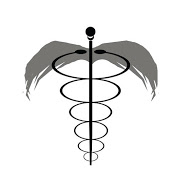Why UTIs could soon kill more people than cancer does

Between the cold weather, late nights, and returning back to school and work environments from holiday breaks, it is quite easy to pick up any sickness spreading around. If you do happen to feel under the weather, you may be at more risk than you might think. A quick fix may not be available either. Doctors are becoming increasingly stingy with antibiotics, and it’s because people are realizing that they are not working.
The superbug epidemic is not a new issue. The FDA has issued warnings for years about how the excessive use of antibiotics will only hasten the inevitable fact that pathogens will become more resistant to our treatments. The main reason antibiotics are losing their effectiveness is because they are being seriously overused and used incorrectly. The purpose of antibiotics is to kill harmful bacterial infections. They do not help treat viruses, and many medications are being prescribed for exactly that.
Many are unaware of what illnesses are bacterial and which are viral. Illnesses such as the common cold and influenza are viruses and will not respond to antibiotics. Most ear infections, sinus infections, sore throats and coughs do not require medication to eliminate them. However, antibiotics must be used to treat things such as pneumonia, urinary tract infections, strep throat and whooping cough.
These antibiotics would not be accessible without the doctors, and yet the doctors prescribe them despite knowing the facts. This is due to multiple reasons, the most important one of them them being uncertainty. Many viruses and bacterial infections have similar symptoms and can be extremely hard to differentiate. There are viral and bacterial versions of many illnesses. Professionals don’t want to risk leaving a bacterial infection untreated. In many cases, the bacterial infections are far more dangerous than the viral versions, and therefore antibiotics are prescribed as a safeguard.
Another reason too many medications are distributed is because doctors are being doormats. Patients often demand antibiotics, and doctors find it easier to simply give them a prescription and satisfy them then persuade and/or argue as to why they do not need them. Long work hours also have a role to play. Fatigue and exhaustion can contribute to poor decision making and consequently resulting in prescribing an exorbitant amount of antibiotics.
The blame is not on just medical professionals. Some people take antibiotics incorrectly, either not taking the full dose to avoid side effects or stop taking them once they feel better. Both of these scenarios only kill the healthy bacteria within the body along with the weaker pathogens of the infecting bacterium. That leaves only the stronger, superbugs to remain within the body to multiply out of control and even mutate, making the medications useless.
“I’ve noticed that doctors aren’t too quick to order antibiotics anymore,” says freshmen Carsten Weick. “It frightens me that the future doesn’t contain treatments for even little medical conditions and illnesses.”
In some places, there have already been outbreaks. In February 2015 a stomach bacteria commonly known as CRE infected several students in a UCLA medical lab. Seven people were infected and two people died. It was seen in other parts of the country in several other hospitals and killed a few other people. In China, scientists discovered a new superbug closely related to E. coli that is resistant to the strongest mainstream antibiotic family, known as polymyxins.
Although many bacterial infections are becoming more resistant, some are more riskier than others. MRSA, the six hospital pathogens dubbed as ESKAPE (Enterococcus, Staph, Klebsiella, Acinetobacter, Pseudomonas, and Enterobacter), E. coli, Salmonella, and Gonorrhea are all requiring more invasive treatments. According to ABC News, the largest and most posing threat is Tuberculosis. Tuberculosis already takes millions of lives worldwide each year. If it isn’t closely monitored, a strain of highly drug resistant bacterium could result in a worldwide epidemic. By 2050, superbugs are predicted to take over 10 million lives annually. That’s more than total deaths caused by cancer and car accidents combined. Loss of population to that degree in addition to other causes of death would impact the entire human race.
Scientists in Europe and Asia are working to eradicate these diseases. They are not on track to eliminate anything soon. English healthcare professionals are predicted to eradicate Tuberculosis within the next century, the goal being 2050.
